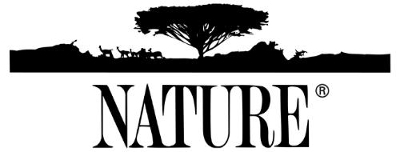“Nature” Tracks Down the Builder of Burrows on Hotel “Armadillo” Wednesday, April 19, 2017 on PBS
Brazil’s remote Pantanal, covering more than 80,000 square miles, is the largest tropical wetland in the world. It is chiefly made up of flooded grassland with patches of dry savannah or forest and home to a large and diverse wildlife population, including one of the most ancient of living mammals, the highly secretive Giant armadillo.

Hotel Armadillo follows the work of conservation biologist Arnaud Desbiez, who founded the Giant Armadillo Project, and his team. The Project is supported by more than 40 zoos and aquariums worldwide. The program premieres Wednesday, April 19, 2017 at 8 p.m. (ET) on PBS (check local listings) and streams at pbs.org/nature.
Not much was known about its life in the wild until recently because it is rare, nocturnal, solitary, and wary of people. It also digs a new underground burrow, up to 20 feet deep, every other night where it spends 75 percent of its life. So researchers studying these animals spend time locating their burrows, hoping to spot and track the Giant armadillos. What they didn’t anticipate was what happens when the elusive animal vacates its spacious temporary abode and moves on.
The filmmakers accompany Desbiez and his team as they return to check whether the newly developed camera trap by a burrow has captured any footage of its female occupant whom they’ve named Tracy, named after the first Giant armadillo researcher Tracy Carter. The cameras begin recording when triggered by the tiniest of movements whether it is day or night. The rare footage shows a cautious Tracy emerging from her home using her acute sense of smell and hearing to examine her surroundings before heading off to spend the night feeding on termites. The team is jubilant with these results and then begin to notice something unexpected.
The new camera gear Desbiez is using for this expedition enables capturing more continuous images from above and below ground. The footage shows how other species quickly take possession of the Giant armadillo’s roomy burrow, once it checks out. Not only has this ancient creature, which first appeared some 50 million years ago, left a large underground shelter for its neighbors, but the newly-excavated earth also provides food for them in the form of insects and roots.
As the team tracks four Giant armadillos, each fitted with a tiny transmitter, they are learning more about the mysterious animal. It appears an individual can have a home range of up to six square miles and may excavate more than 150 burrows in a single year. So far, 80 different species have been recorded checking into one of the Giant armadillo’s rooms such as its smaller cousin, the six-banded armadillo; tamanduas (small anteaters), who leave their babies there while foraging; rodents; ocelot; brocket deer; and lizards. This leads Desbiez to theorize that the Giant armadillo could be crucial to the survival of the entire Pantanal ecosystem.
The film states that the animal’s habitat is being impacted by an increase in ranching which uses fire to encourage new growth. Desbiez sees flames in the distance as he locates a burrow with its entrance sealed. That’s a sign there’s a baby inside. Its mother Isabelle had an earlier offspring that was the first baby Giant armadillo Desbiez studied, until killed by a puma at less than two years old. The team replays the latest camera footage to see if Isabelle has emerged with her new baby so their research can continue and the Giant armadillo population gets an addition.
Nature is a production of THIRTEEN PRODUCTIONS LLC for WNET. For Nature, Fred Kaufman is executive producer. Hotel Armadillo is a Maramedia production for THIRTEEN Productions LLC and BBC Studios in association with WNET.
Nature pioneered a television genre that is now widely emulated in the broadcast industry. Throughout its history, Nature has brought the natural world to millions of viewers. The series has been consistently among the most-watched primetime series on public television.
Nature has won more than 700 honors from the television industry, the international wildlife film communities and environmental organizations, including 17 Emmys and three Peabodys. The series received two of wildlife film industry’s highest honors: the Christopher Parsons Outstanding Achievement Award given by the Wildscreen Festival and the Grand Teton Award given by the Jackson Hole Wildlife Film Festival. The International Wildlife Film Festival honored Nature executive producer Fred Kaufman with its Lifetime Achievement Award for Media.
PBS.org/nature is the award-winning web companion to Nature, featuring streaming episodes, filmmaker interviews, teacher’s guides and more.






